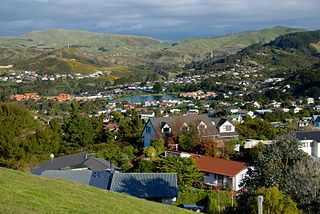
Whitby, a large suburb of Porirua City, New Zealand, located along much of the southern shore of the Pauatahanui Inlet of Porirua Harbour was comprehensively planned in the 1960s and it has been continuously developed since, with current landscaping and expansion in the hills behind the eastern part of Whitby to facilitate the future growth of the suburb.
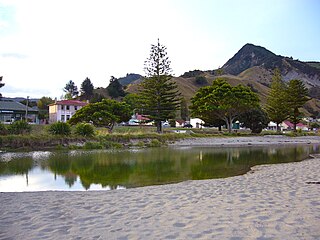
Tokomaru Bay is a small beachside community located on the isolated East Coast of New Zealand's North Island. It is 91 km north of Gisborne, on State Highway 35, and close to Mount Hikurangi. The district was originally known as Toka-a-Namu, which refers to the abundance of sandflies. Over the years the name was altered to Tokomaru Bay.

Paremata is a suburb of Porirua, on the Tasman Sea coast to the north of Wellington, New Zealand.

Camborne, New Zealand is a hilltop and seaside suburb of Porirua.
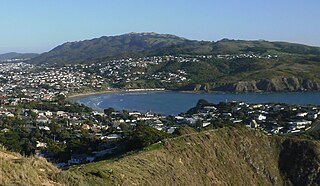
Tītahi Bay, a suburb of Porirua in the North Island of New Zealand, lies at the foot of a short peninsula on the west coast of the Porirua Harbour, to the north of Porirua city centre.

Wairakei is a small settlement, and geothermal area a few kilometres north of Taupō, in the centre of the North Island of New Zealand, on the Waikato River. It is part of the Taupō Volcanic Zone and features several natural geysers, hot pools. boiling mud pools, and the Wairakei Power Station, a major geothermal electric power generating station.
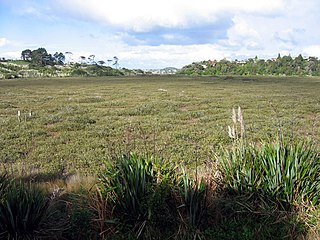
Northcote Central is a suburb of Auckland's North Shore, in northern New Zealand. It is located on the northern shore of the Waitematā Harbour.
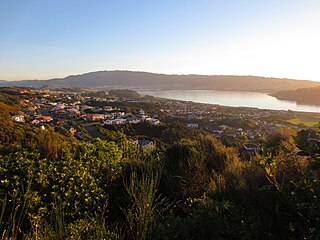
Papakōwhai is a suburb of Porirua City. It lies approximately 22 kilometres (14 mi) north of Wellington in New Zealand.
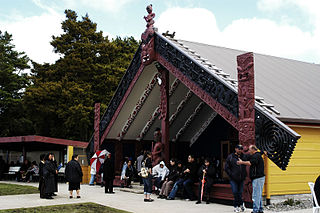
Pukawa or Pukawa Bay is a bay and a small township on the southern shores of Lake Taupo on New Zealand's North Island. It is off State Highway 41 between Turangi and Taumarunui, in the Taupo District and Waikato region.
Ascot Park is a suburb of Porirua City approximately 22 kilometres (14 mi) north of Wellington in New Zealand.
Waitangirua is a suburb of Porirua City approximately 22km north of Wellington in New Zealand.
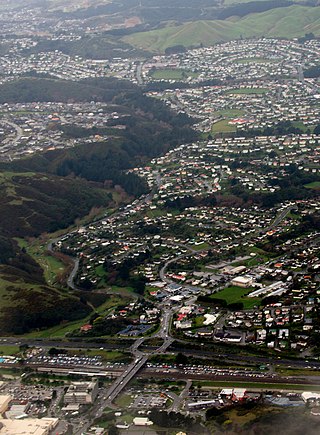
Cannons Creek is a suburb of Porirua City approximately 22km north of Wellington in New Zealand.

Ruawai is a small town located 30 km south of Dargaville in Northland, New Zealand.
Fernridge is a small rural settlement located 4 km northwest of Masterton, New Zealand. The area has a mixture of farms, horticultural smallholdings and lifestyle blocks.

Aotea is a suburb of Porirua.

Linden is a part of Tawa, the northernmost suburb of Wellington, New Zealand. Linden lies at the northern end of Tawa, just south of the city of Porirua.
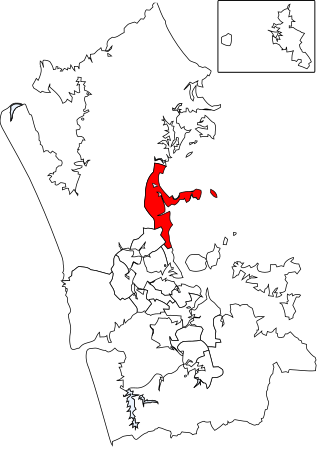
The Hibiscus and Bays Local Board is one of the 21 local boards of the Auckland Council. It is one of two boards overseen by the council's Albany Ward councillors. The board consists of eight members elected at large.
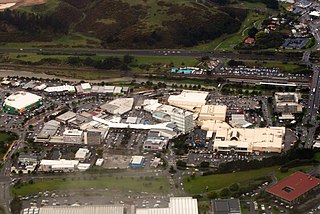
Porirua Central is the central business district and central suburb of Porirua, in the Wellington region of New Zealand's North Island.

Elsdon is a suburb of the New Zealand city of Porirua located immediately to the west to of the city's CBD. The area was named after Elsdon Best, a historian who studied archaeological sites in the area. Its industrial area, the largest in the city, is known for housing the factory used by New Zealand chocolate company Whittaker's; constructed in 1969, it remains the company's sole production site to this day.

Rānui is a suburb of Porirua City approximately 21 kilometres (13 mi) north of Wellington in New Zealand. Rānui means midday in the Māori language.
















